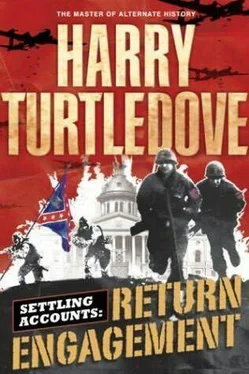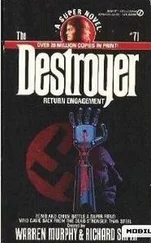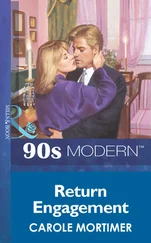Harry Turtledove - Return engagement
Здесь есть возможность читать онлайн «Harry Turtledove - Return engagement» весь текст электронной книги совершенно бесплатно (целиком полную версию без сокращений). В некоторых случаях можно слушать аудио, скачать через торрент в формате fb2 и присутствует краткое содержание. Жанр: История, на английском языке. Описание произведения, (предисловие) а так же отзывы посетителей доступны на портале библиотеки ЛибКат.
- Название:Return engagement
- Автор:
- Жанр:
- Год:неизвестен
- ISBN:нет данных
- Рейтинг книги:5 / 5. Голосов: 1
-
Избранное:Добавить в избранное
- Отзывы:
-
Ваша оценка:
- 100
- 1
- 2
- 3
- 4
- 5
Return engagement: краткое содержание, описание и аннотация
Предлагаем к чтению аннотацию, описание, краткое содержание или предисловие (зависит от того, что написал сам автор книги «Return engagement»). Если вы не нашли необходимую информацию о книге — напишите в комментариях, мы постараемся отыскать её.
Return engagement — читать онлайн бесплатно полную книгу (весь текст) целиком
Ниже представлен текст книги, разбитый по страницам. Система сохранения места последней прочитанной страницы, позволяет с удобством читать онлайн бесплатно книгу «Return engagement», без необходимости каждый раз заново искать на чём Вы остановились. Поставьте закладку, и сможете в любой момент перейти на страницу, на которой закончили чтение.
Интервал:
Закладка:
People all around crunched popcorn and slurped sodas. The Martins were crunching and slurping, too. That was what you did when you came to one of these places. Somebody behind them bit down on a jawbreaker. It sounded as if he were chewing a bunch of rocks.
The newsreel came on after the cartoon. Carl enjoyed it. He liked watching things blow up, and wasn't fussy about whose things they were. But Chester and Rita got very quiet. Watching Ohio torn to pieces hurt them all the more because they'd lived most of their lives there. Rita reached out and squeezed Chester's hand when the newsreel showed bomb damage in Toledo.
They didn't cheer up much at seeing the wreckage of Confederate bombers, either. "We are fighting back," the announcer declared. "Every day, the vicious enemy has a harder time going forward. We will stop him, and we will beat him back."
Was he whistling in the dark? It sure seemed that way to Chester. So far, U.S. forces had done nothing but retreat. Could they do anything else? If they could, when? When would it be too late? What would happen if the Confederates cut the United States in half? The resolutely cheerful announcer not only didn't answer any of those questions, he didn't acknowledge that they existed.
Then the newsreel camera cut away to somewhere behind the lines, as the card at the head of the feature declared. Soldiers sat on the ground watching four men with long beards cavort on a makeshift stage with a pathetically dignified woman. "The Engels Brothers entertain the troops," the announcer said. "Their mad hijinks help our brave men forget the dangers of battle."
Sure enough, the soldiers were laughing. Chester remained dubious. He'd laughed, too, when he escaped from the trenches for a little while. But he'd never forgotten the dangers. How could he? He still woke up screaming every so often, though now it was once every two or three years, not once every two or three weeks.
After the Engels Brothers left the stage, bathing beauties paraded across it. The soldiers liked them even better, even if they could only look and not touch. The girls were wearing much less than they would have in a Great War entertainment. Chester approved of that. He was sure the young soldiers enjoyed it even more.
Al Smith appeared on the screen. Some people in the theater cheered the President. Others booed. By Smith's ravaged face, he was hearing those boos-and the roar of the guns-even in his sleep. He looked out at the audience he would never see in the flesh. "Our cause is just," he insisted, as if someone had denied it. "We will prevail. No matter how fierce and vicious our enemy may be, he will only destroy himself with his wickedness. Stand together, stand shoulder to shoulder, and nothing can hold you back."
That sounded good. Chester wondered if it was true. So far, the evidence looked to be against it. But then the newsreel cut from President Smith to the Stars and Stripes flying in front of a summer sky. "The Star-Spangled Banner" swelled on the soundtrack. People sang along in the theater. For a couple of minutes, Socialists, Democrats, and the handful of remaining Republicans did stand shoulder to shoulder.
The film started. It was a story of intrigue set in Kentucky between the wars. All the villains had Confederate drawls. The hero and heroine sounded as if they came from New York and Boston, respectively. They foiled the villains' plot to touch off a rebellion and fell in love, both at the same time.
"Kentucky will be ours forever," he said, gazing into her eyes.
"Kentucky will be free forever," she replied, gazing into his. They kissed. The music went up. The credits rolled. The film had to have been made in a tearing hurry-certainly since the plebiscite early in the year. Did it help? Or did it only make people feel worse by reminding them that Kentucky was lost?
"Is there another picture after this one?" Carl asked.
"The cartoons and the newsreel and the movie weren't enough for you?" Chester asked.
Carl shook his head. "Nope." But he betrayed himself by yawning.
"Well, it doesn't matter, because there isn't another picture," Rita said. "And you're up way past your bedtime."
"Am not," Carl said around another yawn.
Since there wasn't another picture, though, arguments for staying out later had no visible means of support. They walked back to the apartment where they'd lived since moving from Toledo. It was only a few blocks, but they had to go slowly and carefully through the blacked-out streets. Cars honked to warn other cars they were there as they came to intersections. That no doubt cut down on accidents, but it didn't do much for people who were trying to get to sleep.
To Chester's relief, Carl went to bed without much fuss. Chester knew he wouldn't sleep well himself, and the honks out in the street had nothing to do with anything. "Things are lousy back East," he said heavily.
"Looks that way," Rita agreed. "Doesn't sound like they're telling everything that's going on, either."
"Oh, good," Chester said, and his wife looked at him in surprise. He explained: "I didn't want to think I was the only one who was thinking something like that."
"Well, you're not," his wife said. "We've both been through this before. If we can't see past most of the pap, we're not very smart, are we?"
"I guess not," Chester said unhappily. He lit a cigarette. The tobacco was already going downhill. The Confederate States grew more and better than the United States. He hoped losing foreign exchange would hurt them. Blowing a moody cloud of smoke toward the ceiling, he went on, "Got to do something about it."
"Who's got to do something about what?" Rita's voice was sharp with fear. She'd been married once before. Her first husband hadn't come home from the Great War. Had he talked like this before joining the Army? Chester wouldn't have been surprised. Everybody'd been openly patriotic in 1914. Machine guns hadn't yet proved heroism more expensive than it was often worth.
Chester sucked in more smoke. It didn't calm him as much as he wished it would. He said, "Doesn't hardly feel right, being out here all this way away from the fighting."
"Why not? Isn't one Purple Heart enough for you?"
He remembered the wound, of course. How not, when he would take its mark to the grave with him? He remembered hitting a man in butternut in the face with an entrenching tool, and feeling bone give beneath the iron blade. He remembered cowering in trenches as shells came down all around him. He remembered his balls crawling up into his belly in terror as he went forward in the face of machine-gun fire. He remembered poison gas. He remembered lice and flies and the endless stench of death.
But, toward the end, he also remembered the feeling that everything he'd gone through was somehow worthwhile. That wasn't just his looking back from almost a quarter of a century's distance; he'd felt it in 1917. Only one thing explained it-victory. He and so many like him had suffered so much, but they'd suffered for a reason: so the USA could get out from under the CSA's thumb.
That was why the plebiscites in Kentucky and Houston had disturbed him so much. They returned to the Confederates for nothing what the United States had spent so much blood to win. What was the point of everything he and so many millions like him had gone through if it was thrown away now?
Slowly, he said, "If they lick us in Ohio, they'll turn the clock back to the way it was before 1914."
"So what?" Rita said. "So what, Chester? What difference will that make to you? You'll still be right here where you've been for years. You'll be doing the same things you've done. Your hair is going gray now. You're not a kid any more. You've given the country everything it could want from you. Enough is enough."
Every word of that made good, solid sense. But how much sense did good, solid sense make when the United States were in trouble? "I don't feel right standing on the sidelines and watching things go down the drain," he said.
Читать дальшеИнтервал:
Закладка:
Похожие книги на «Return engagement»
Представляем Вашему вниманию похожие книги на «Return engagement» списком для выбора. Мы отобрали схожую по названию и смыслу литературу в надежде предоставить читателям больше вариантов отыскать новые, интересные, ещё непрочитанные произведения.
Обсуждение, отзывы о книге «Return engagement» и просто собственные мнения читателей. Оставьте ваши комментарии, напишите, что Вы думаете о произведении, его смысле или главных героях. Укажите что конкретно понравилось, а что нет, и почему Вы так считаете.












